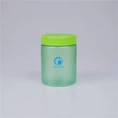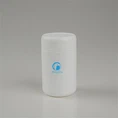Probiotics have become a popular supplement choice for supporting digestive health, boosting immunity, and maintaining a balanced gut microbiome. While they can provide many benefits, their effectiveness depends on how you take them. Certain foods, drinks, and medications may interfere with probiotics and reduce their positive effects.
In this article, we'll look at what not to mix with probiotics and how to get the most out of your supplement routine.
1. Antibiotics
Antibiotics are designed to kill harmful bacteria, but they can also wipe out the beneficial bacteria in your gut, including the probiotic strains you are supplementing with.
Tip: If you need to take antibiotics, avoid taking probiotics at the exact same time. Instead, separate the doses by at least 2–3 hours. This way, your probiotics have a better chance of surviving.
2. Very Hot Foods and Drinks
Heat can destroy live probiotic cultures. If you mix probiotics with hot coffee, tea, or boiling soup, many of the beneficial bacteria may not survive.
Tip: Always consume probiotics with cool or room-temperature water. If you're adding probiotic powder or capsules to food, wait until the food has cooled.
3. Alcohol
Excessive alcohol intake disrupts gut balance and can kill healthy bacteria. Drinking alcohol alongside probiotics may reduce their effectiveness.
Tip: If you consume alcohol, try to take your probiotic supplement at a different time of the day, ideally when your stomach is calmer and not under the effects of alcohol.
4. High-Sugar Foods
While probiotics thrive on prebiotic fibers (such as those from vegetables, fruits, and whole grains), too much sugar can encourage the growth of harmful bacteria and yeast in the gut, which may compete with probiotics.
Tip: Pair probiotics with fiber-rich foods like oats, bananas, or leafy greens to maximize benefits.
5. Chlorinated or Fluoridated Water
Chlorine and fluoride in tap water are meant to kill bacteria. Unfortunately, they don't distinguish between harmful and beneficial strains. Taking probiotics with unfiltered chlorinated water may reduce their survival rate.
Tip: Drink probiotics with filtered or purified water when possible.
6. Certain Medications (e.g., Antifungals, Laxatives, Antacids)
Some medications can alter the gut environment or destroy beneficial microbes. For example, antifungal drugs may interfere with probiotic yeast strains, while frequent use of antacids changes stomach acidity levels, affecting probiotic survival.
Tip: Always consult your doctor if you're on medication and want to use probiotics at the same time.
















